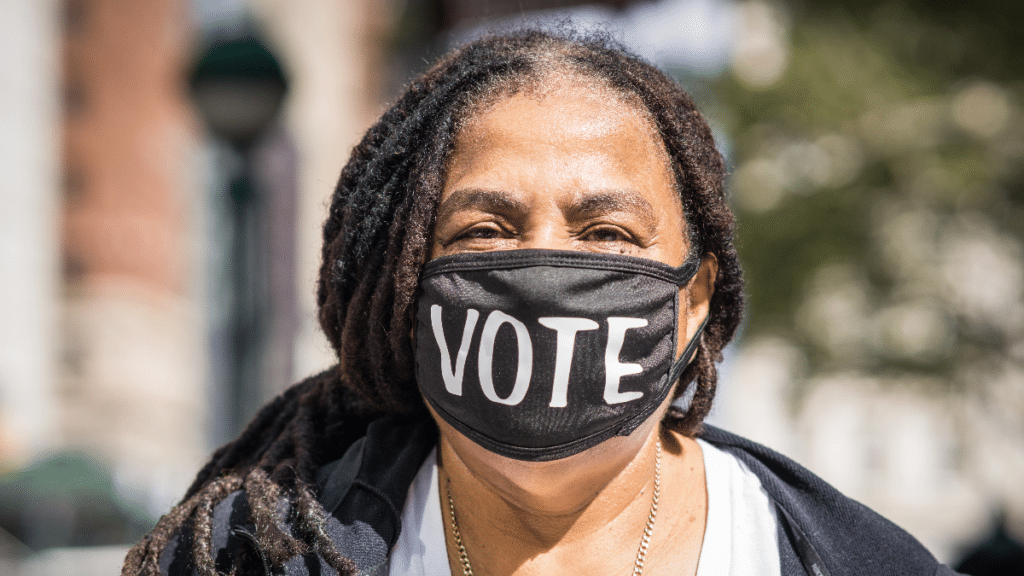Technology Companies Must Make Platforms Safer for Women in Politics
Theodora Skeadas, Kaleigh Schwalbe / Aug 22, 2023Theodora Skeadas consults with the National Democratic Institute (NDI) on a project addressing online gender-based violence and women’s political participation. Kaleigh Schwalbe is a Program Manager for Information Integrity at NDI.

The National Democratic Institute (NDI) recently completed an extensive study mapping interventions that technology platforms should take to better protect women online based on recommendations from civil society organizations from around the globe. NDI then convened a series of focus groups with representatives from various technology platforms to discuss the business cases for investing in these interventions to address online violence against women in politics. This is what we learned.
Online violence against women undermines democracy
Honorable Neema Lugangira, a parliamentarian from Tanzania who is at the forefront of addressing online violence against women in politics, is concerned with how women in politics are expected to tolerate online abuse and are constantly told to have thicker skin – that this is just part of their job. But she doesn’t see her male colleagues getting harassed for how they look, who they took a photo with, or threatened because of their gender. She estimates less than 25% of women in the Tanzanian parliament are active on social media for work, and it is precisely to avoid online harassment and abuse.
Besides the democratic implications of women self-censoring, if technology companies want to have more prominent women in politics like Hon. Lugangira actively participating in and driving engagement to their social media platforms, these women first need to feel safe even registering for an account. Hon. Lugangira is just one of the hundreds of political women from around the world that the National Democratic Institute (NDI) has met with to discuss this issue, and all of them experienced online harassment and abuse because of their gender.
Looking ahead, 2024 will be an enormous geopolitical moment, with major elections in over sixty countries including the United States, India, Indonesia, Ukraine, Taiwan, Mexico, and the European Parliament, among many others. Women's perspectives and experiences are essential for creating inclusive policies and addressing issues that affect them and their communities. When women are prevented from participating in political discussions due to online harassment and abuse, their voices are silenced with severe democratic consequences. Therefore, ensuring that women are able to participate fully and safely in online political discourse will be critical for advancing and protecting the democratic process.
At the same time, it is no secret that social media is becoming an increasingly toxic environment, especially for women. As online gender-based abuse and harassment continues to escalate, technology platforms such as Meta, Twitter, and Google are cutting back on staff and resources responsible for making the platforms safe– mainly their trust and safety teams, which are viewed as a cost center. For those advocating for more safety features and tools for users, especially women and marginalized groups, simply saying it's “the right thing to do” to protect women on the platform and support democracy globally isn’t cutting it anymore.
But are cuts to safety features, especially for women, really saving platforms money, or is it a missed opportunity that will end up costing them even more? The benefits of women’s safety on the platforms can be difficult to quantify in dollars and cents, though there is a case to be made for how supporting women, especially women in politics, can be a revenue driver for platforms while supporting democratic integrity in the process.
Interventions for technology platforms to address this issue
In October, the National Democratic Institute (NDI) published a list of survivor-centered interventions that technology platforms could take to address online violence against women, especially women in politics. Other civil society organizations from around the world have published additional reports on this topic, totaling nearly 300 proposed platform interventions.
After a comprehensive review, our team assessed that the most requested interventions from civil society organizations for technology platforms to better protect women online were around transparency (28%), curation or customization (25%), and policy (8%).Examples includemeasuring the prevalence of gendered abuse and sharing data through corporate transparency reports; building account security systems that enable survivors of abuse, who are hacked and locked out, to recover their accounts; and clearly articulating policies that prohibit content that harasses or abuses someone on the basis of gender identity.
Business cases for technology platforms to end online violence against women
As part of this research, NDI met with representatives from multiple technology platforms to discuss the most compelling reasons for why companies should invest more in providing safe spaces for women to express their political opinions online. We discussed how implementing these top requested interventions from civil society organizations can help technology platforms to mitigate the risk of online harassment and abuse, ensure that women are able to participate safely on the platforms, and simultaneously meaningfully respond to financial realities.
Governments around the world, especially in Europe, are increasingly enacting legislation to combat online abuse, such as the Digital Services Act (DSA). Failure to comply may yield fines, lawsuits, or even platform bans. By proactively addressing online harassment and abuse, platforms can reduce their exposure to legal and regulatory risks.
But this is not just about addressing downside risk– there is potential upside. Byprioritizing the safety and inclusion of women, companies can build new revenue streams by attracting a more diverse user base and increasing user engagement. If only 20% of women in a given country are using a social media platform, that’s a huge untapped market. There is an effect companies can leverage where women joining a platform can influence more women to join. Prominent women in politics and public life interacting with other users online can also drive more attention and engagement. To further boost visibility, platforms can form partnerships with organizations focused on women's empowerment, political participation, or gender equality. These partnerships can lead to sponsored content, advertising revenue, or other monetization opportunities.
Enhancingbrand reputationis another way for platforms to drive revenue. Companies that actively promote a safe and inclusive online environment for all users, including women, are likely to be perceived as responsible and ethical. This positive brand image can help attract new users and retain existing ones, as well as appeal to advertisers and investors. One growing technology company we spoke to that is grappling with boosting its brand image in the wake of recent congressional hearings, recognizes the need to invest in resources that serve its women users. In a recent focus group, representatives from the company shared the seriousness with which they take responsibility around harm reduction, and how this is front and center in developing their brand. They also acknowledged that prioritizing harm reduction drives trust in users and improves the company’s overall business. This trust can lead to increased customer loyalty and higher retention rates on the platform.
To find an edge in an increasingly competitive market, technology platforms can differentiate themselves from competitors and establish a unique selling point by working innovatively at the forefront of creating safe spaces for women in the online political sphere. Companies like T2 and Bumble are placing women’s safety at the core of their business models. As Sarah Oh, the co-founder from T2 notes, “To build a successful social media platform in the year 2023, means putting trust and safety at the core. People joining T2 have high expectations around feeling like they can share content without fearing abuse and harassment and we’re making early investments to ensure we’re living up to these expectations. Our business success depends on it." Such efforts can help companies gain market share and foster long-term loyalty from users who value the platform's commitment to inclusivity and safety.
Addressing online violence against women can also benefit companies internally by fostering an inclusive work culture. A diverse and inclusive work environment increases creativity, innovation, and productivity, which can benefit the company's bottom line, and diverse leadership can advance meaningful policies themselves.
Ultimately, the products and policies that technology companies implement to protect women in politics can protect all users on their platforms. And by providing greater safety tools and resources to this critical user group, platforms can protect the integrity of democracies globally.
Authors

